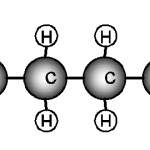Gasoline, often referred to as petrol, is a liquid fuel derived from petroleum through the refining process. It is a vital and widely used energy source for internal combustion engines, particularly in automobiles. The composition of gasoline consists mainly of hydrocarbons—organic compounds composed of hydrogen and carbon atoms.
Gasoline is characterized by its volatility, meaning it easily vaporizes at relatively low temperatures. This property makes it well-suited for combustion within internal combustion engines, where the fuel-air mixture is ignited by a spark plug. The combustion process in the engine generates the necessary power to propel vehicles.
Refineries produce various grades and formulations of gasoline to meet specific performance requirements and environmental standards. Typically, additives are included to enhance qualities such as octane rating, which measures a fuel’s resistance to knocking or premature ignition in an engine.
Gasoline serves as a primary fuel for personal and commercial transportation, powering cars, motorcycles, and small trucks. Its widespread use in the automotive industry has significantly influenced global mobility and economic activities. Despite its prevalence, there is growing awareness of the environmental impact of burning gasoline, contributing to efforts to explore alternative and more sustainable energy sources for transportation.


